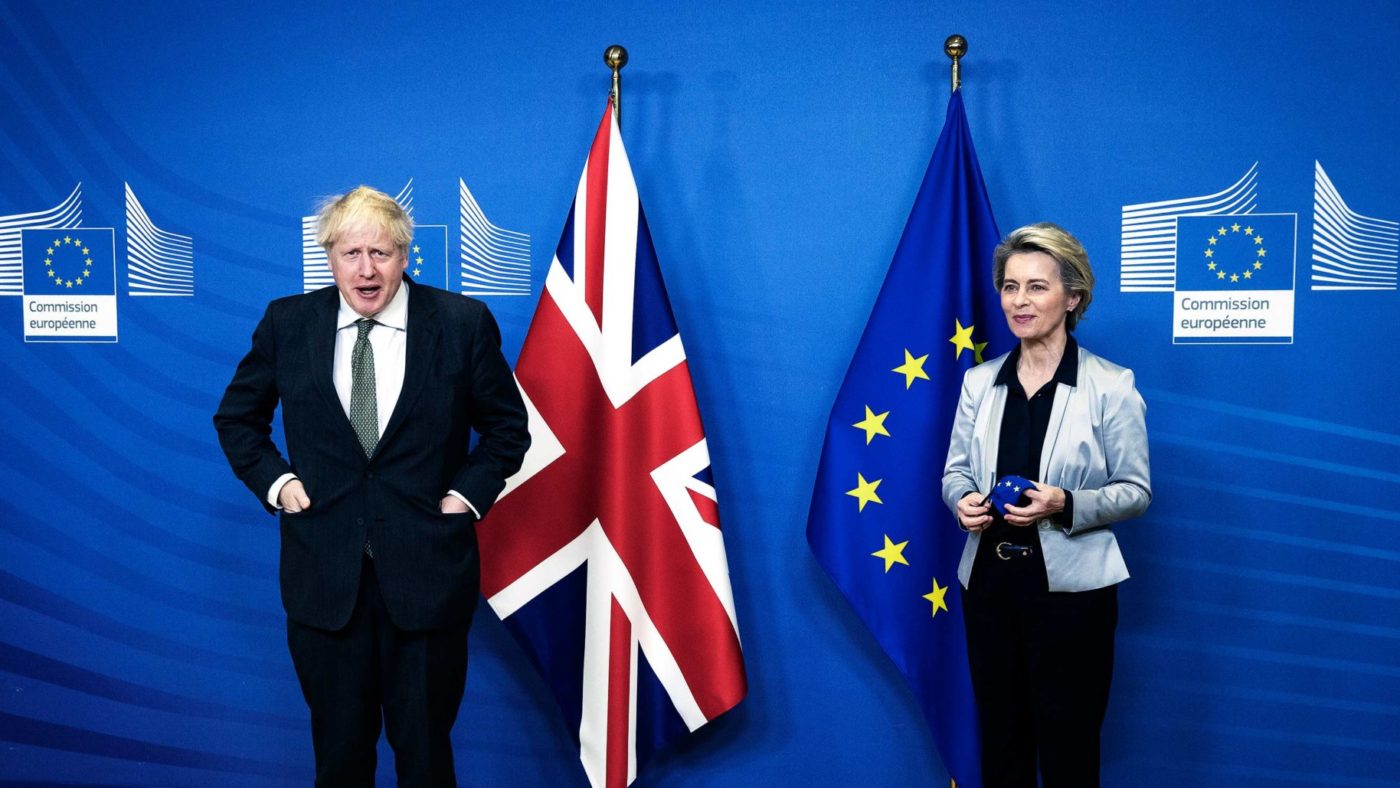After four years of grand statements, red lines, ticking clocks, and all the rest of it, it is extremely easy to be cynical about the theatre of the European negotiations.
Michael Gove’s arriving in Parliament, brandishing a shiny-looking but suspect deal on the vexed question of trade between Great Britain and Northern Ireland, might have signalled that London and Brussels had finally reached a larger breakthrough.
Instead, we learned yesterday evening that there is apparently still lots of clear blue water between the two sides, who have set themselves a new deadline of Sunday to work out whether or not there is a deal to be done.
How much of this is pantomime is impossible to tell from outside. Both sides have a strong incentive to talk up how difficult everything is. Based on past performance, the most likely option is surely that if there is blinking to be done, Boris Johnson will do it. He shamelessly jettisoned his avowed refusal to countenance an Irish Sea border between Ulster and the mainland, after all, and unlike Ursula von der Leyen – who must square her position with the EU’s many powerbrokers – there is very little that could stop the Prime Minister ratifying whatever he was minded to accept.
But that doesn’t mean a ‘no deal’ exit is out of the question, not least because – as trade experts must be getting tired of pointing out – a free trade agreement with the EU would not mean that there is no disruption when we leave the bloc. Simply by virtue of the form of Brexit the Government has chosen to pursue, quitting both the Single Market and the Customs Union and fighting to avoid ‘dynamic alignment’ on regulations, there will be substantial dislocation.
Johnson and his team will have a much more detailed understanding of what percentage of that disruption an FTA on the available terms would prevent. It might not be enough. It isn’t impossible to imagine the Prime Minister calculating that, if he’s going to face a long winter of ‘port chaos’ and similar stories either way, capitulating on totemic such as state aid isn’t worth the political price.
This will win him plaudits from the committed Brexiteers, even as it further alienates those liberally-inclined voters who have moved away from the Conservatives since 2016. It might help him solidify the Tories’ grip on the ‘Red Wall’ seats.
But that depends on making sure that it is Brussels, and not Westminster, that carries the can. So we should expect any announcement that the talks have irretrievably collapsed to be immediately accompanied by a British version of events setting out why it was the EU’s fault. Despite having been “determined not to leave any route to a fair deal untested”, the other side weren’t prepared to respect Johnson’s red lines regarding “the independence and sovereignty of the UK” and he, for a change of pace, was not prepared to abandon them.
Failure to secure an FTA could also place Sir Keir Starmer in a tricky position. The Leader of the Opposition was a staunch opponent of Brexit in the last Parliament and an outspoken critic of a no-deal exit. His personal instincts, not to mention the expectations of his Europhile MPs, party, and electorate, will be to go on the attack.
Yet if the Government’s grounds for walking away centre on issues that matter to those pro-Brexit voters who have abandoned Labour, such as fishing or state aid, that will be tricky. The obvious response from the Prime Minister will simply be: what would you do? Swallow these unacceptable conditions? Leave the North behind yet again?
Once again, Labour may lose its footing in the deep divisions that have opened up between the different parts of its old electoral base. (Starmer’s forlorn reheating of his party’s one idea for Scotland, now dubbed ‘devo max’, is another symptom of the same malaise.)
In the long run, however, this tactical difficulty will not spare the Government sole ownership of the consequences of the manner of Brexit it delivers. If the nation faces a long winter of disruption and delays – and especially if this directly impacts on a front-rank issue such as the import of medicines and the vaccination programme – that will carry a heavy political price.
The danger is that the lack of public understanding about the limitations of an FTA becomes a double-edged sword, with all manner of issues which would have arisen regardless being blamed on ‘no deal’ and its architects.
Click here to subscribe to our daily briefing – the best pieces from CapX and across the web.
CapX depends on the generosity of its readers. If you value what we do, please consider making a donation.


